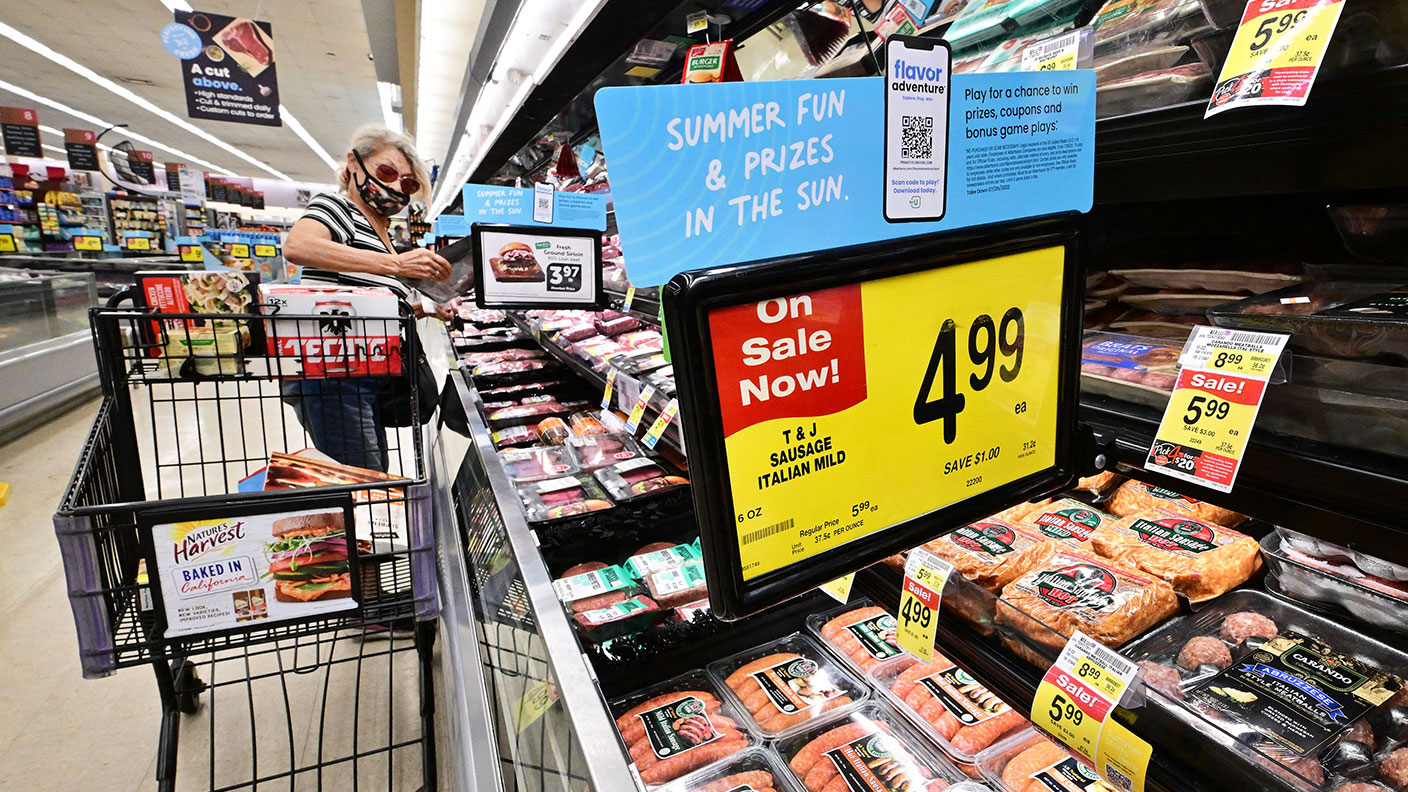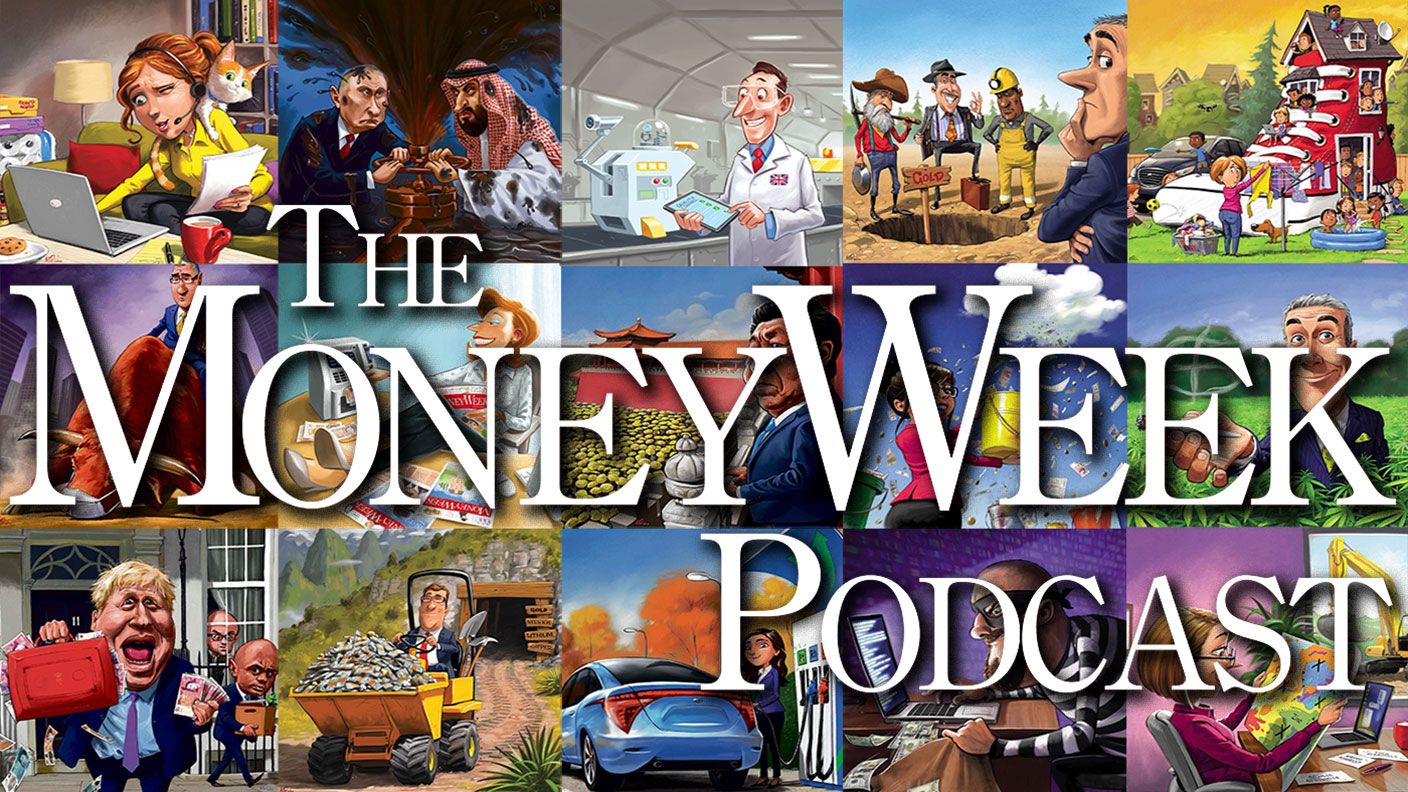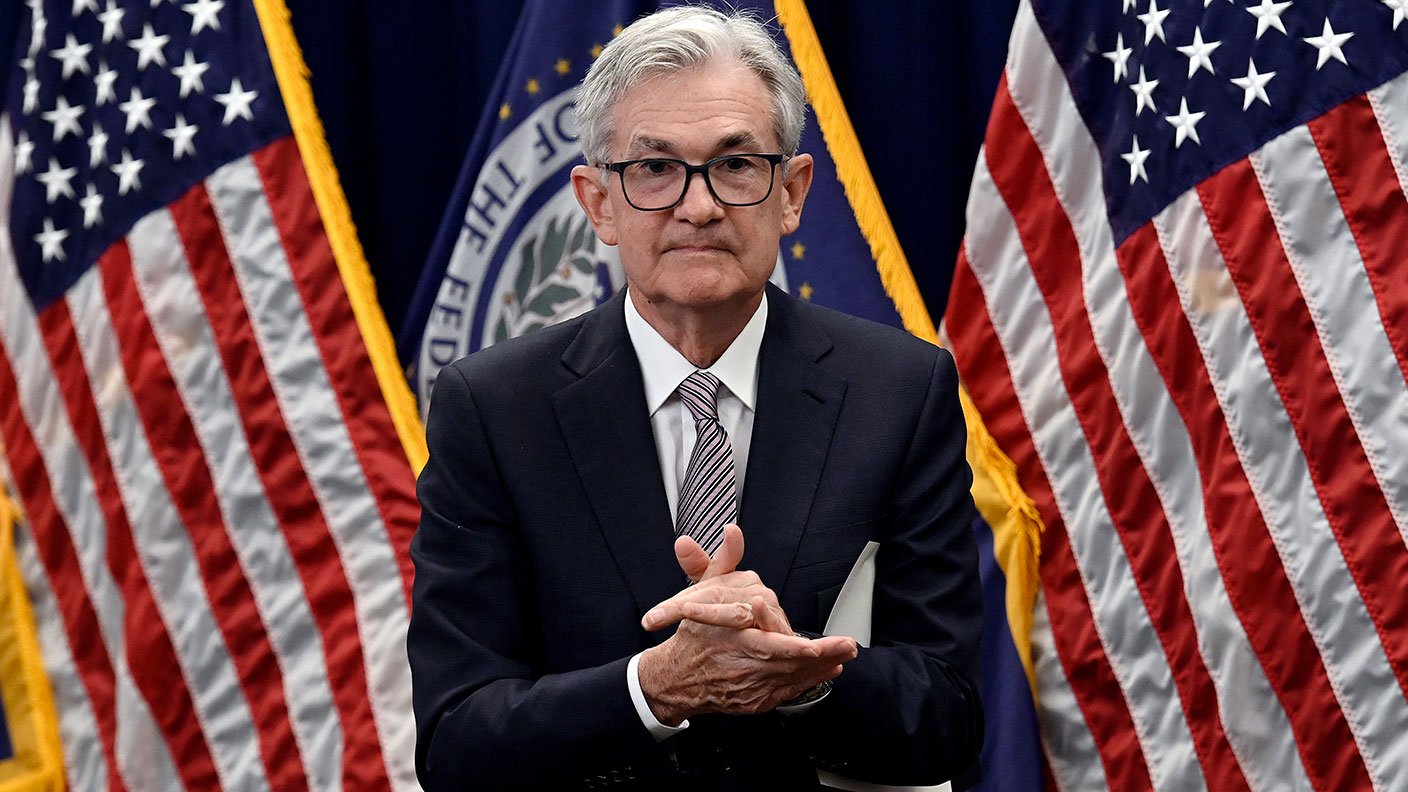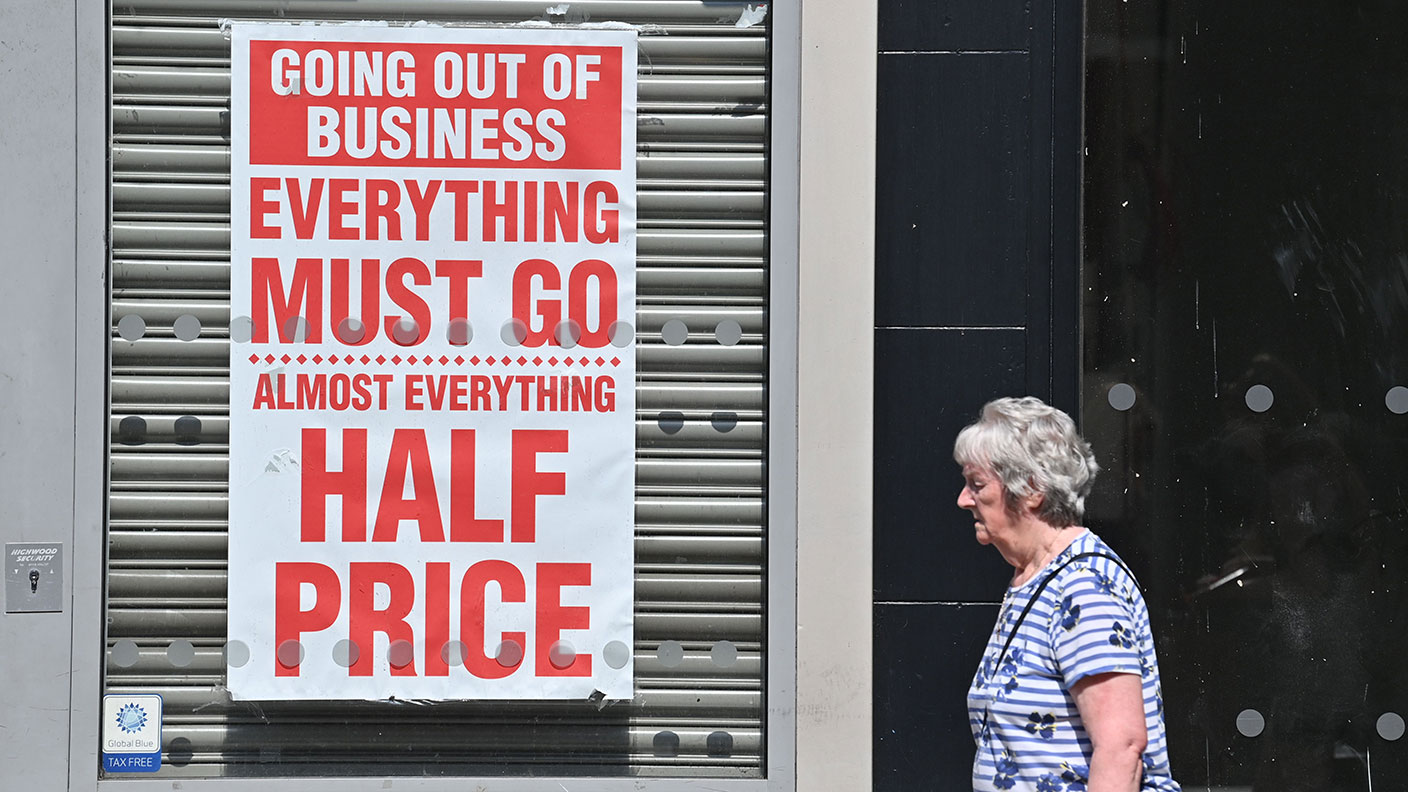Get the latest financial news, insights and expert analysis from our award-winning MoneyWeek team, to help you understand what really matters when it comes to your finances.
You are now subscribed
Your newsletter sign-up was successful
Want to add more newsletters?

Twice daily
MoneyWeek
Get the latest financial news, insights and expert analysis from our award-winning MoneyWeek team, to help you understand what really matters when it comes to your finances.

Four times a week
Look After My Bills
Sign up to our free money-saving newsletter, filled with the latest news and expert advice to help you find the best tips and deals for managing your bills. Start saving today!
Foreign-exchange trading also known as forex, FX or currency trading is a particularly popular market among people who are new to online trading. That's not a good thing: studies and surveys suggest that most of them quickly end up losing their money.
This has given FX trading a reputation for being a relatively high-risk activity. But while currencies are not the best choice for a complete beginner, that verdict may not be entirely fair.
The foreign-exchange markets are not especially volatile in fact, big price swings are relatively rare. You can take on a lot more risk of unexpected price movements punting on small-cap stocks.
MoneyWeek
Subscribe to MoneyWeek today and get your first six magazine issues absolutely FREE

Sign up to Money Morning
Don't miss the latest investment and personal finances news, market analysis, plus money-saving tips with our free twice-daily newsletter
Don't miss the latest investment and personal finances news, market analysis, plus money-saving tips with our free twice-daily newsletter
Instead, the problem is that new traders dreaming of vast profits often pile on far too much leverage to compensate for the fact that individual moves are small. This makes it easy for them to lose everything through a few bad trades a problem made worse by the fact that they have little idea about risk management and aren't scrupulous about setting and sticking to stop losses.
Some providers promise leverage of up to 500:1 it can be difficult for novices to understand that just because this degree of gearing is available, it doesn't mean that any experienced trader would actually use it.
Those who are profitable over the long term are more likely to use overall leverage of around 10:1, depending on their strategy. And for traders who can avoid falling victim to temptation and pitfalls, FX can be attractive.
It offers a very large, liquid and continuous market: trading takes place 24 hours a day from Monday to Friday, although the best liquidity is concentrated in the times when Asian trading hours overlap with European ones and European hours with US ones.
Costs are relatively low the main cost of trading is the spread, which should be small when trading major currencies. And long-term trends are driven by economic fundamentals, which makes it a good market for macro-focused traders who want to base their decisions on issues such as inflation and interest rates.
How to trade forex
When you trade currencies, you take a view on how one will perform against another, rather than just buying one outright. For example, you might want to speculate on the pound (GBP) rising against the dollar because the Bank of England looks set to raise interest rates before the Federal Reserve.
Pairs are written in the form GBP/USD and the position is based on the currency on the left. So long GBP/USD is a bet that sterling will rise against the dollar.
Prices for major currencies are usually quoted to four decimal places, except for those involving the yen, which are quoted to two decimal places. The last digit in the quote is known as a pip or a tick so if GBP/USD is quoted at 1.5959 and moves to 1.6003, that's a four-pip move.
Traditionally, the pip was the small unit in which currencies were traded, but some providers now give quotes with an additional decimal place, known as a fractional pip. As with other forms of trading, currencies are quoted with a spread: for example, at the time of writing, GBP/USD was being quoted at 1.5959-1.5961, which is a spread of two pips.
The exact mechanics of a currency trade depends on what method you use. One option is to spread bet FX in terms of pounds per point, where one point equals one pip. So we might go long GBP/USD at £1 per point on the price quoted above (1.59613). If GBP rises to 1.65500, we'd make almost £590 on the trade.
Alternatively, we could trade a currency CFD (contract for difference), which is usually expressed in terms of a fixed value per contract, such as £100,000. This will work in a similar way to a spread bet.
Finally, the third way involves us notionally buying and selling a certain amount of currency. Trades are done in lots, with a standard lot being 100,000 units of the base currency so in our example, we would buy £100,000 and sell an equivalent amount ($159,613). When we wanted to close the trade, we would then buy back $159,613.
Which type of broker is best?
Different FX firms use different methods of carrying out your trades and it's useful to understand these, to identify the best one for your needs. The first is the dealing-desk model, used by spread-betting and CFD providers, among others.
These providers trade directly with you, taking the other side of your position. In other words, if you profit, they lose and vice versa. The provider may offset its exposure to clients by dealing in other markets.
With this kind of firm, it's important to understand that the price you get is what your provider offers you. Some providers will offer much better prices and tighter spreads than others.
Alternatively, your provider may act as a broker rather than your counterparty, requesting quotes from one or more banks and other brokerages (known as liquidity providers) and sending your order to the best one. This is called straight-through processing (STP).
Underlying spreads from the liquidity provider will usually be tighter, but the STP broker will either mark up the commission or charge an explicit brokerage fee, since it does not directly profit from your trade.
Lastly, an electronic communications network (ECN) aggregates quotes from a large pool of liquidity providers and other traders. You pay an explicit brokerage commission to a broker that lets you trade on the ECN, which may or may not be the same firm that manages the ECN. Quotes from an ECN will have the tightest spreads and the greatest transparency, but ECN brokers usually have large minimum account sizes.
Get the latest financial news, insights and expert analysis from our award-winning MoneyWeek team, to help you understand what really matters when it comes to your finances.
MoneyWeek is written by a team of experienced and award-winning journalists, plus expert columnists. As well as daily digital news and features, MoneyWeek also publishes a weekly magazine, covering investing and personal finance. From share tips, pensions, gold to practical investment tips - we provide a round-up to help you make money and keep it.
-
 Should you buy an active ETF?
Should you buy an active ETF?ETFs are often mischaracterised as passive products, but they can be a convenient way to add active management to your portfolio
-
 Power up your pension before 5 April – easy ways to save before the tax year end
Power up your pension before 5 April – easy ways to save before the tax year endWith the end of the tax year looming, pension savers currently have a window to review and maximise what’s going into their retirement funds – we look at how
-
 How a dovish Federal Reserve could affect you
How a dovish Federal Reserve could affect youTrump’s pick for the US Federal Reserve is not so much of a yes-man as his rival, but interest rates will still come down quickly, says Cris Sholto Heaton
-
 What does the latest inflation shocker from the US mean for your money?
What does the latest inflation shocker from the US mean for your money?Analysis US inflation has hit another fresh 40-year high and it’s unlikely to be going away any time soon, despite the best efforts of the Federal Reserve. With markets already predicting a recession, John Stepek explains what it all means for you.
-
 Liz Ann Sonders: raging inflation and the bear market is not “70s redux”
Liz Ann Sonders: raging inflation and the bear market is not “70s redux”Podcasts Merryn talks to Liz Ann of Charles Schwab about how today’s raging inflation and bear market came about, what to do, and why it’s not like the 1970s stagflation, or the the 2007-2008 crash.
-
 Protecting your wealth from inflation won’t be easy – here’s what to do
Protecting your wealth from inflation won’t be easy – here’s what to doOpinion US inflation hit a fresh 40-year high last week. That sent markets into a spin over fears of interest rates rising more quickly than expected. John Stepek explains what you should do to protect your wealth.
-
 Recession talk is a red herring – here’s what investors should focus on instead
Recession talk is a red herring – here’s what investors should focus on insteadAnalysis There is a lot of talk of impending recession. But that’s not something you should worry too much about, says John Stepek. What’s more important is that the world is changing – and you need to change the way you invest.
-
 Which mistake will central bankers choose to make next?
Which mistake will central bankers choose to make next?Editor's letter The heads of the Bank of England and the US Federal Reserve have choices – but none of them are good choices, says Merryn Somerset Webb.
-
 Too embarrassed to ask: what is tapering?
Too embarrassed to ask: what is tapering?Videos Tapering is the reduction in quantitative easing provided by a central bank. But how does it work?
-
Why investment forecasting is futile
Opinion Every year events prove that forecasting is futile and 2020 was no exception, says Bill Miller, chairman and chief investment officer of Miller Value Partners.

